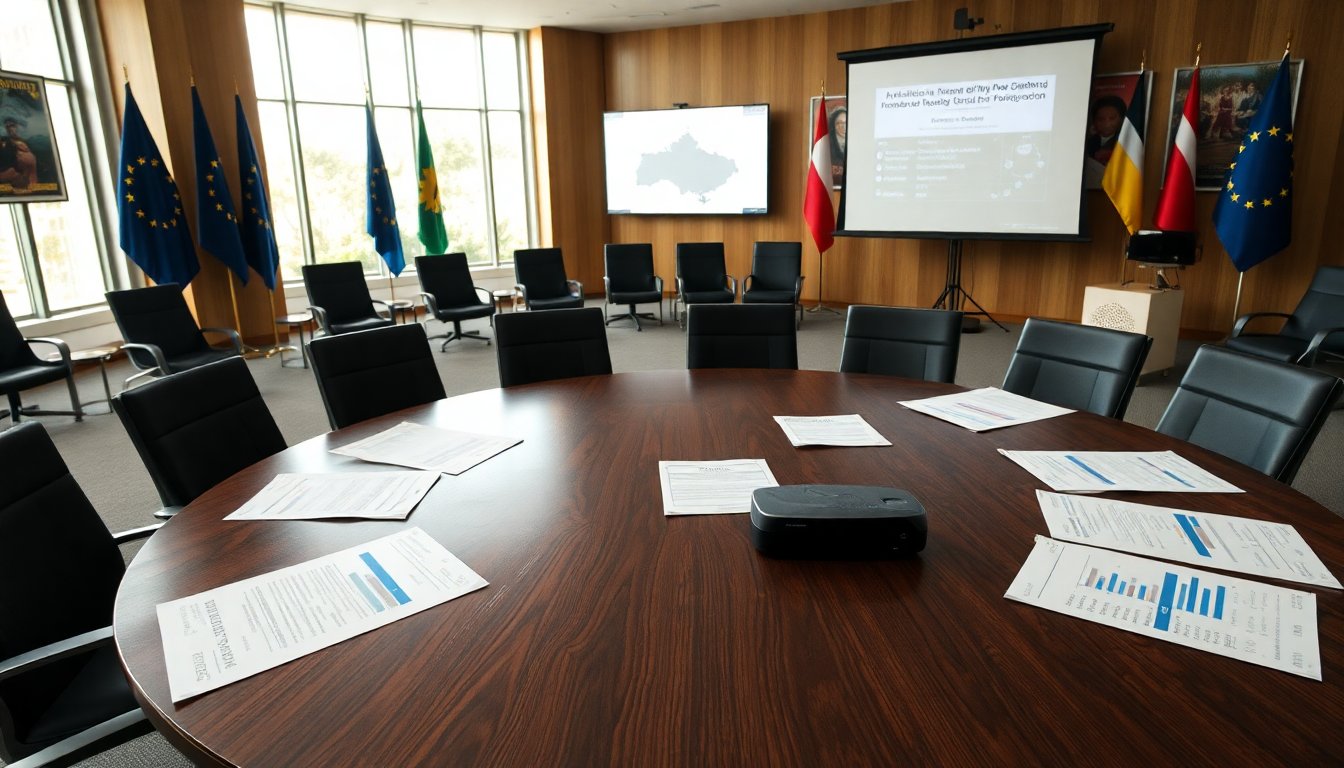Table of Contents
In a significant move, the European Union is contemplating a strategy to mobilize €140 billion in frozen Russian assets to aid Ukraine. This initiative faces a challenge due to the opposition from Hungarian Prime Minister Viktor Orbán. The EU historically requires unanimous agreement from its member states for such actions, granting Orbán a powerful veto.
However, the European Commission believes it has identified a legal workaround that could allow decisions to be made by a qualified majority, thereby circumventing Hungary’s dissent. This proposal represents a critical effort to strengthen Ukraine’s defenses amid the ongoing conflict with Russia.
Background on the EU’s financial support strategy
On December 19 of the previous year, EU leaders, including Orbán, reached a consensus that Russian assets should remain immobilized until the country ceases its aggressive actions against Ukraine and compensates for the resulting damages. This agreement primarily focused on keeping these assets frozen at Euroclear, a financial institution in Belgium, while allowing the interest accrued to be utilized for Ukraine’s war efforts.
The Commission’s new interpretation of this agreement suggests that it could serve as a legal basis to shift the decision-making process away from the necessity of unanimous consent. For this to materialize, however, a majority of the member states would need to align in their support.
Challenges in gaining consensus
Securing broader agreement is expected to be challenging, particularly with other nations in the EU that have historically maintained friendly relations with Russia, such as Slovakia. Additionally, there are concerns from the Belgian government regarding the legal ramifications of any action that could be perceived as appropriating Russian assets. Prime Minister Bart De Wever has expressed apprehension about potential retaliation from Moscow, stating, “Taking Putin’s money and leaving the risks with us. That’s not going to happen, let me be very clear about that.”
Despite these concerns, De Wever has indicated a willingness to engage in discussions about the proposal, highlighting Belgium’s support for actions against Putin—unlike Hungary and Slovakia.
Proposed solutions and next steps
To address Belgium’s concerns, it is likely that other EU nations would provide guarantees, replacing the Euroclear assets allocated to Ukraine with jointly underwritten IOUs. This would help mitigate the perceived risks associated with legal repercussions.
The upcoming meeting of EU leaders in Copenhagen is set to focus on this loan plan, although formal decisions will be postponed until the end of October, following discussions among finance ministers on October 10 in Luxembourg.
Strategic alliances and opposition
Germany, Spain, Poland, and the Baltic states, which are geographically closer to Ukraine, are key proponents of the Commission’s initiative. Meanwhile, France and Italy have expressed caution regarding any unorthodox proposals to utilize immobilized Russian state assets. The divergence of opinion among member states underscores the complexity of achieving consensus within the EU.
As the situation evolves, the potential for a veto from Budapest poses a significant challenge, possibly allowing Russian funds to be redirected back to Moscow. The Commission’s workaround aims to mitigate this risk, but there remains apprehension about establishing a precedent based on past political statements influencing future policies.
However, the European Commission believes it has identified a legal workaround that could allow decisions to be made by a qualified majority, thereby circumventing Hungary’s dissent. This proposal represents a critical effort to strengthen Ukraine’s defenses amid the ongoing conflict with Russia.0
However, the European Commission believes it has identified a legal workaround that could allow decisions to be made by a qualified majority, thereby circumventing Hungary’s dissent. This proposal represents a critical effort to strengthen Ukraine’s defenses amid the ongoing conflict with Russia.1


